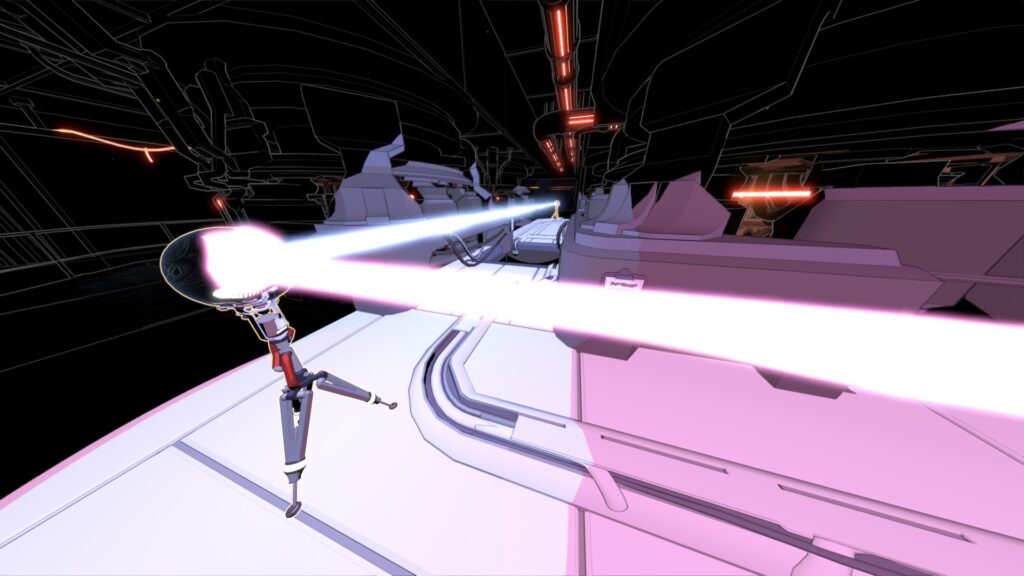
The success of Portal spawned countless first-person puzzle-platformers set in crazy science facilities, and Lightmatter is one of the newest games to tackle the genre.
As you can no doubt gather from its name, Lightmatter is a puzzle-platformer based around manipulating light. More specifically, it’s about manipulating light to avoid killer shadows. Lightmatter might not be the most innovative or groundbreaking example of the genre, but it still offers several hours of solid puzzles and intriguing narrative.
Lightmatter
Developer: Tunnel Vision Games
Publisher: Aspyr
Platform: Windows PC
Release Date: January 15th, 2020
Players: 1
Price: $19.99
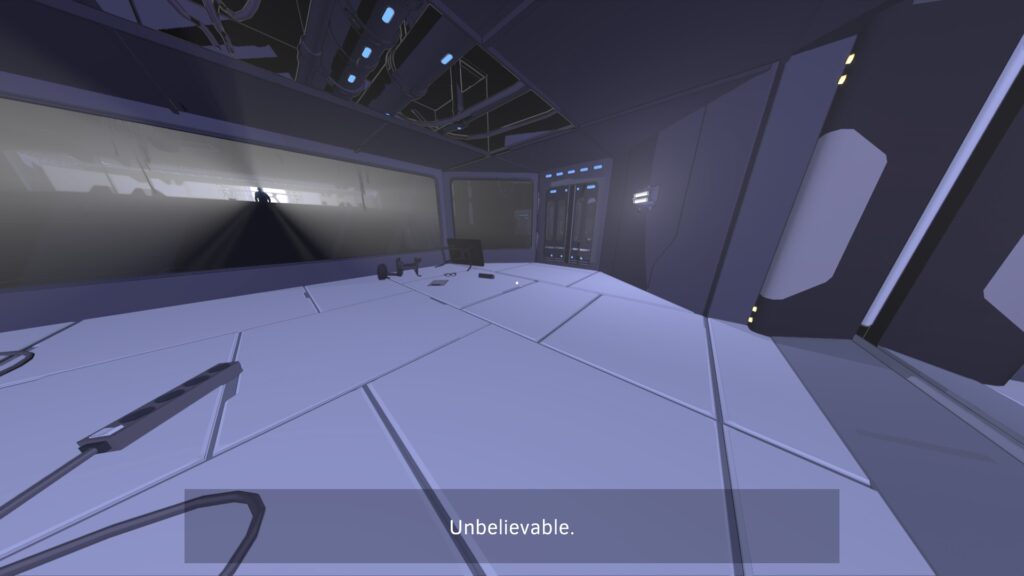
Lightmatter starts off with you clumsily getting to your feet, following a catastrophe in Lightmatter Technologies’ sprawling high-tech facility built deep inside of a remote mountain. The company is responsible for creating Lightmatter, a clean and renewable energy source that the company’s CEO, Virgil, claims will solve humanity’s energy crisis, and make the world a better place.
The company was holding a tour for investors and select individuals, complete with a demonstration of Lightmatter in action. The demonstration ends in disaster, as Lightmatter releases an anomaly that has turned all shadows in the facility into a dark, mysterious goop that will consume anyone it touches. Even worse, the anomaly is gradually expanding.
You quickly encounter Virgil himself, who is working diligently to figure out how to reverse the damage. Since you are stranded in the facility, you end up becoming Virgil’s errand boy, obeying his orders to tinker with various consoles and gadgets as you make your way back to the surface.
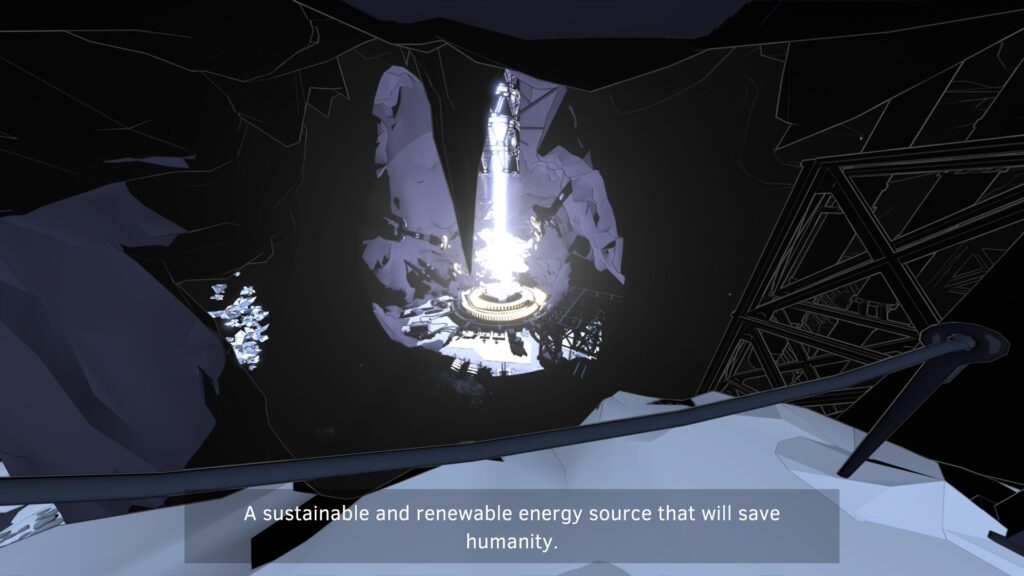
If the deadly shadows weren’t already a big enough clue, there are lots of mysterious things going on at Lightmatter Technologies. As you progress through the game, you’ll find recordings that gradually unravel the dark side of Lightmatter, and the morally questionable experiments going on in the facility.
Virgil is one of the only voiced roles in the game, and acts as a mixture of guide, narrator, and irritatingly pompous and sarcastic scientist. His voice acting and dialog are definitely one of the game’s highlights. His dismissive, arrogant attitude makes him easy to hate, making his inevitable downfall all the more satisfying.
I’ve already dropped some obligatory Portal comparisons, partially because the game openly invites them. There are multiple references to Portal, and yes, one of them involves cake. Portal fanboys might still get a giggle out of such things, but for me, Portal references in 2020 just come off as rather dated and cringeworthy.
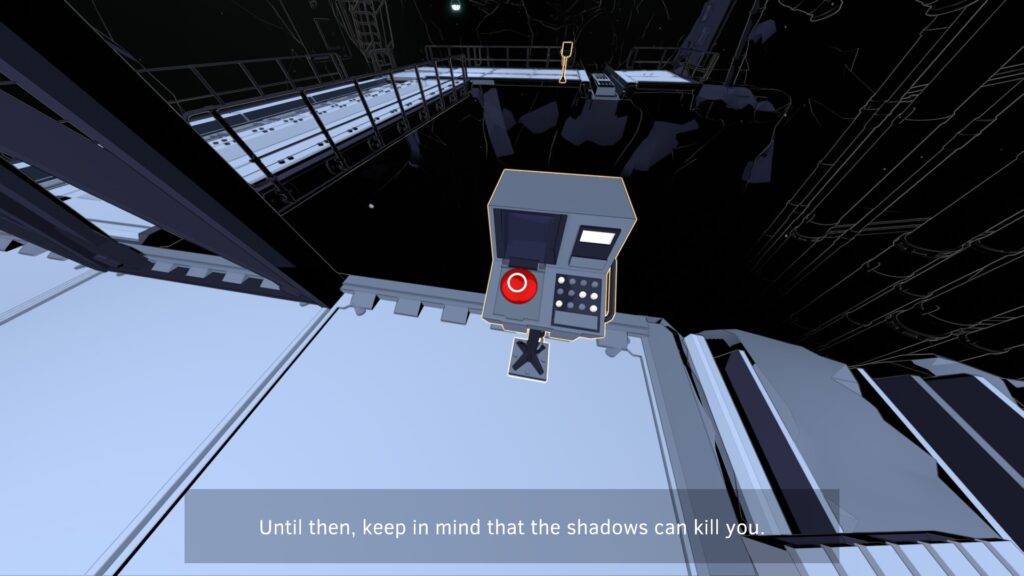
In terms of gameplay, Lightmatter is not unlike Portal and other fan favorites from the first-person puzzle-platformer genre. Each new area is a huge, multi-room puzzle that you need to figure out so you can reach the exit. There are around 38 puzzles in the game altogether.
Lightmatter‘s whole gimmick is that shadows kill, so you need to stay in the light. As such, all the puzzles revolve around creating lit pathways to the puzzle’s exit. You start by just having to hit switches and jump from light source to light source, before the game gradually introduces movable objects and more complicated concepts.
The first of these objects is the humble lamp. You can pick them up and place them in different ways to cast light, dispelling the darkness and creating safe pathways. The downside is that you can’t jump while holding a lamp, and due to the angle at which they cast their light, you can’t simply walk into a dark area and use them as a flashlight.
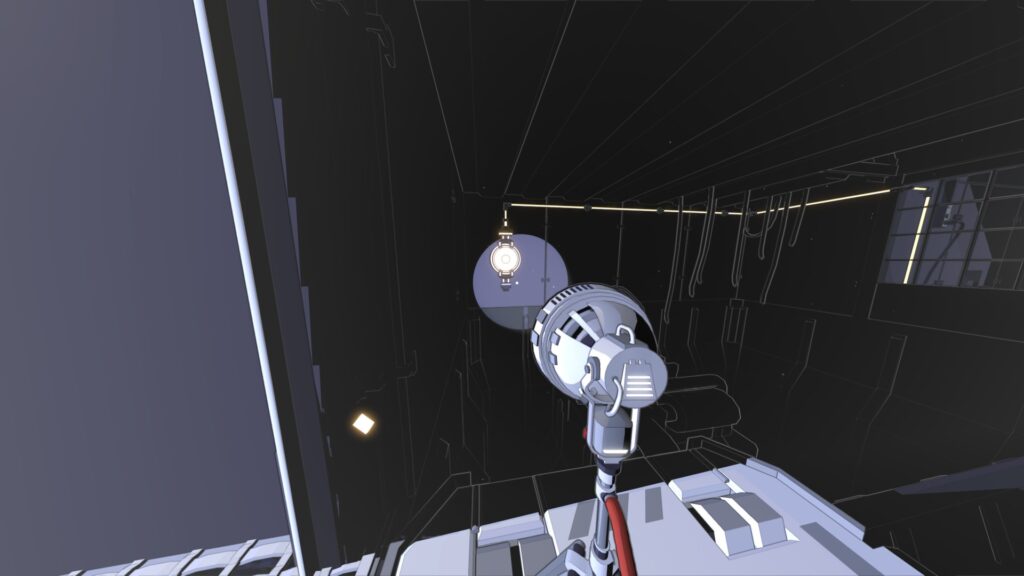
The next moveable object is the photon connector. These small towers create a bubble of light around them, but must have line-of-sight to a light emitter. These light emitters essentially tether the photon connector to them with a beam of light, illuminating the entire path between the connector and emitter.
The light starts out white, but gradually turns red as you break line-of-site with the emitter. You can also chain multiple photon connectors together to create light pathways, and because they create a “bubble” around them, you can carry them around as a portable light source. However, much like lamps, you can’t jump while holding them.
There are various other puzzle elements too, like moving platforms and switches that are activated by light. Platforming and timing comes into play in more than a few puzzles as well, especially in the later stages of the game.
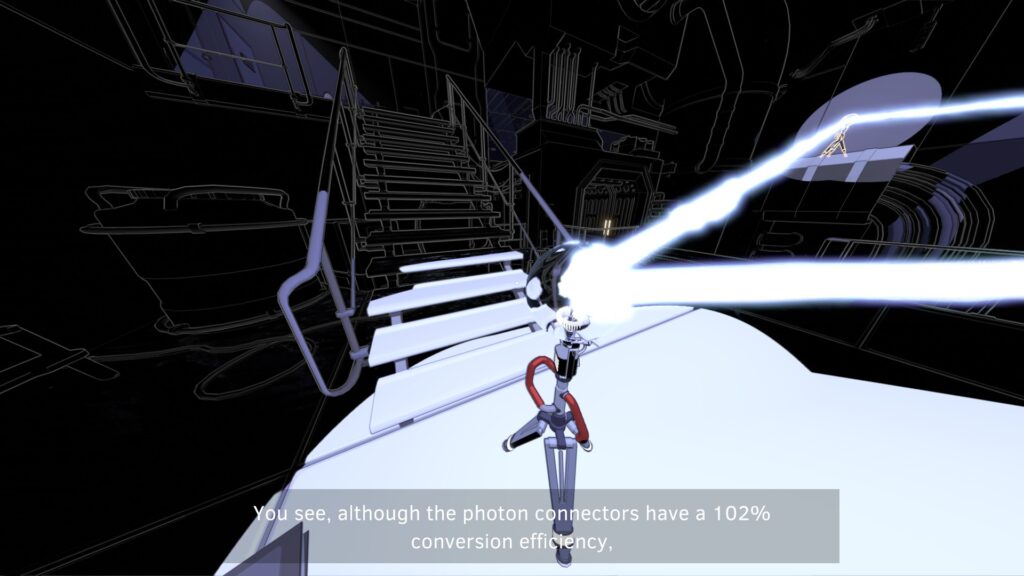
Lightmatter has a fairly small number of mechanics overall. There are really only lamps, photon connectors, switches, and moving platforms to deal with. The small number of mechanics means that the puzzles never get particularly complicated.
The puzzles are pretty clever, and the game does an admirable job of introducing new mechanics at a steady rate. The game has a fairly solid difficulty curve and is well paced, with only a few puzzles that momentarily stumped me before everything clicked.
Depending on how much you like really challenging puzzles, the lack of mechanics could be a positive or a negative. As a more casual fan of the genre, I found the game’s difficulty curve to be fine. Hardcore puzzle fans on the other hand, may find the game a tad too easy most of the time.
It took me just over four hours to beat the game, and I only got about half the achievements in that timeframe. I think the game mostly hits the right balance when it comes to game length. I was enjoying the game so much that I kind of wanted more puzzles, but on the other hand, the game doesn’t overstay its welcome or feel too padded out.
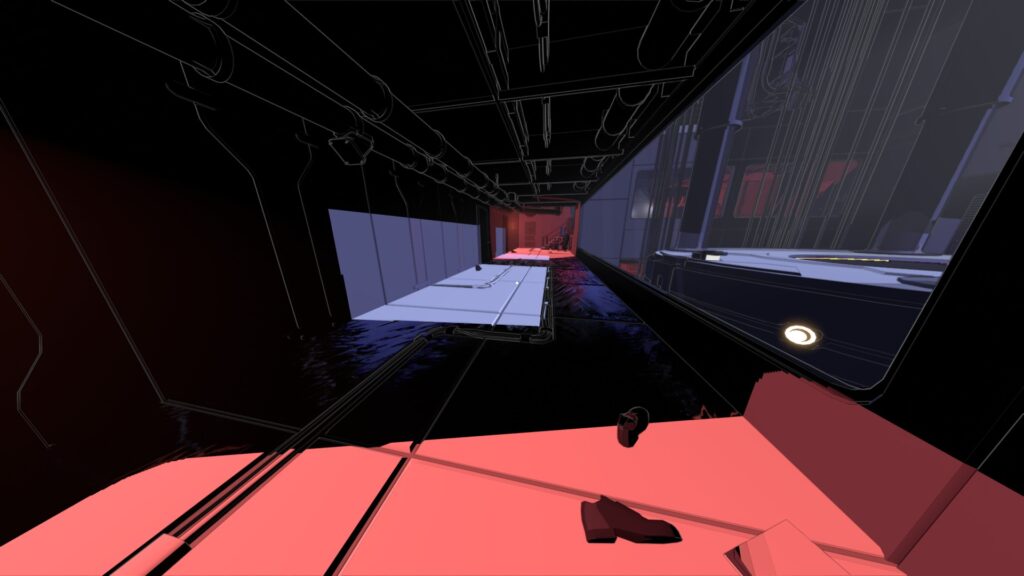
Special mention also has to go to the game’s graphics and presentation. Lightmatter has a very clean aesthetic, and relies primarily on bright white lights and dark, foreboding shadows, with the occasional red here and there. The shadows seem to bubble and shift around, almost like tar, to enhance the overall sense of danger that radiates from them.
On the downside, all those lighting effects come with a hit to the game’s performance in some places. I was getting about 130 FPS throughout the vast majority of the game on my 1070 at max settings.
However, the final few levels really go all out on the special effects, frequently bringing the game to about 30 FPS. A large chunk of the final level hovered around 40-50 FPS on my machine.
The game’s music is fairly calm, and acts mostly to enhance the ambiance of each room. The game also lacks any sort of HUD or UI aside from some button prompts, further immersing you in the game’s world.
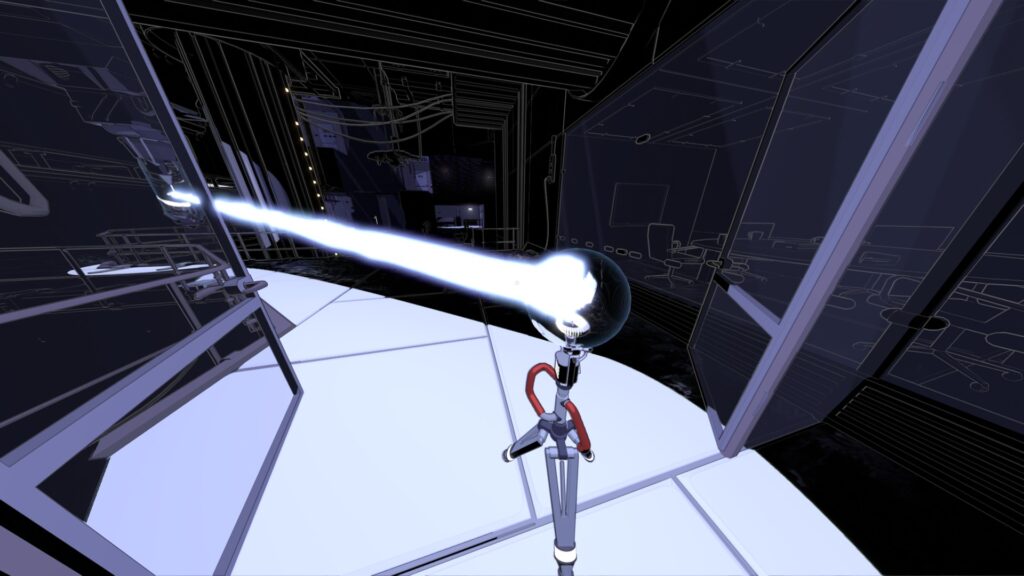
While Lightmatter might not do anything really new or innovative in the genre, it’s nonetheless very good at what it sets out to accomplish. It has some clever and satisfying puzzles, really good visuals, and great voice acting and narrative. It kept me entertained the whole way through, and there really isn’t a lot that I can complain about besides saying “I wish it lasted a little bit longer.”
If you want four hours of fun puzzles based around manipulating light and dispersing killer shadows, then you really can’t go wrong with Lightmatter. If you don’t believe me, the game has a rather generous demo you can try before making a decision. Your progress even carries over to the full game. If you like the demo, then you’ll probably like the full game just as much.
Lightmatter was reviewed on Windows PC using a review copy provided by Aspyr. You can find additional information about Niche Gamer’s review/ethics policy here.